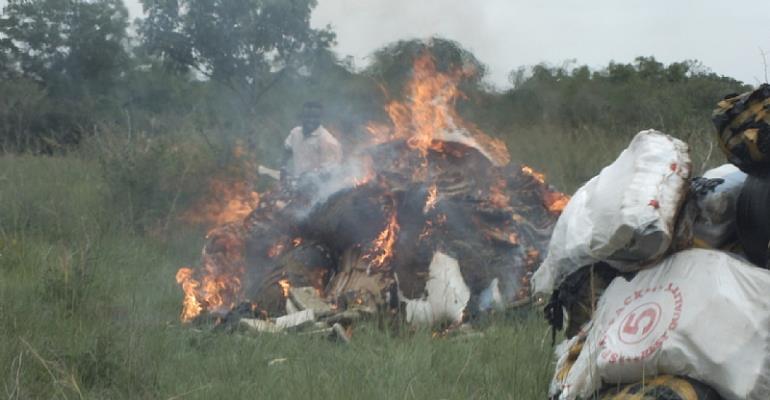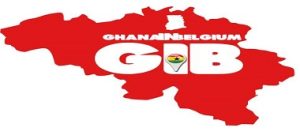
The Narcotics Control Board (NACOB) has destroyed Five Hundred Kilograms (500kg) of Marijuana at the Bundase Military base in the Greater Accra region on Friday 27 July 2018.
The exercise was carried out upon the orders of the Accra Criminal High Court 3 Judge Justice Justin K. Dorgu.
The exercise also witnessed the burning of 100kg of Khat, a flowering plant native to the Horn of Africa and the Arabian Peninsula which is chewed and contains alkaloidcathinone and a stimulant, which is said to cause excitement, loss of appetite, and euphoria.
It is mostly posted through the courier services from East Africa mainly Ethiopia and repackaged to Europe and North America.
The destruction exercise was done in collaboration with the Ghana Police Service, the Military, Ghana Standard Authority (GSA), Judicial Service, Environmental Protection Agency (EPA) and the media.
Background
NACOB in December 2017 impounded a truck full of dried leaves suspected to be cannabis at Buokono, near Asesewa in the Upper ManyaKrobo District of the Eastern Region.
This was upon a tip-off that a boat from Dzemeni in the Volta Region was loaded with cannabis and had offloaded its content onto a truck at a village near Asesewa with its final destination being Ashaiman in the Greater Accra Region.
NACOB in collaboration with the District Police Command at Asesewa intercepted the said truck with registration number ER 105-13 and arrested the driver, one Stephen NartehSangmortey, whiles his accomplice fled upon sensing danger.
In all, 124 sacks all containing dried leaves suspected to be cannabis sativa (wee) were retrieved from the truck.
These comprised 72 sacks of compressed dried leaves and 52 sacks of uncompressed dried leaves, all suspected to be cannabis. The 72 sacks of compressed dried leaves were further found to contain 4,326 slabs of compressed cannabis.
The purported owner of the consignment, one Nicholas Lartey (a.k.aNharyo)has since been at large.
NACOB wishes to assure the public of its continuous commitment aimed at curbing the illicit drug trade.
The public is therefore encouraged to voluntarily provide information leading to the arrest of persons suspected to be indulging in narcotics-related acts.









